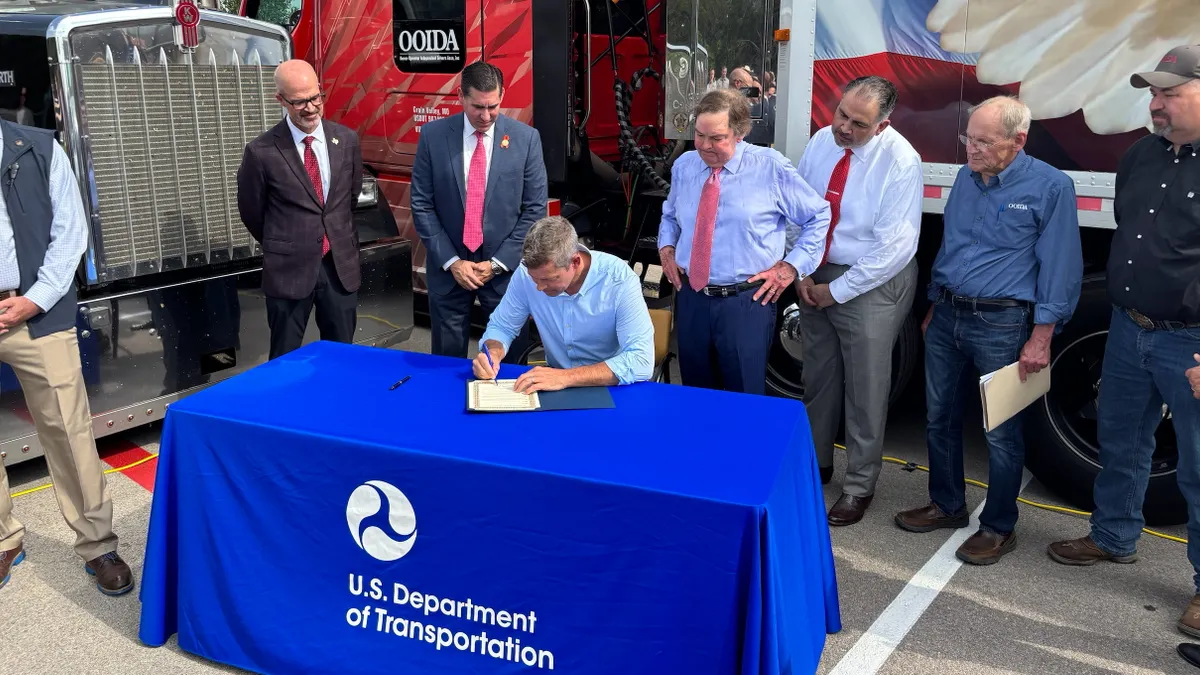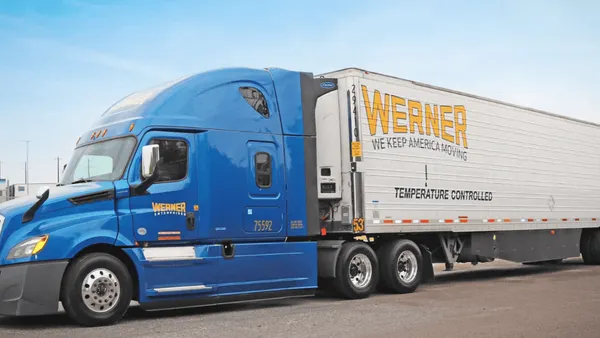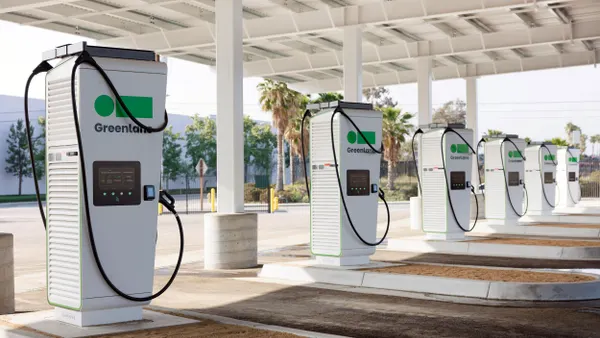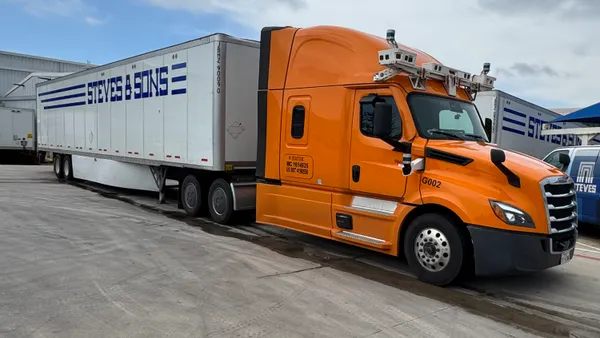Dive Brief:
- Kodiak Robotics started testing the autonomous delivery of Ikea products in Texas seven days a week, the companies announced Tuesday. The three-month partnership began Aug. 8 and ends Nov. 8.
- With the partnership, a driver picks up a loaded trailer and rides along with a self-driving truck. Daily hauls start near Houston at an Ikea distribution center in Baytown and end by Dallas at a Frisco store in the afternoon.
- The pilot is helping Ikea evaluate possibly scaling automated trucks with its carrier partners. Kodiak told Transport Dive in an email that the companies are currently discussing a longer agreement.
Dive Insight:
Kodiak and Ikea Supply began talking about autonomous trucking far before the pilot: In 2019, the two companies connected to discuss the potential for autonomous trucks in the U.S., Press Officer Margareta Lantz at Ikea said in an email.
Since then, the technology has continued to develop, making the pilot possible.
AV companies, shippers and trucking firms alike are now testing the technology in real-world scenarios, evaluating it for safety and on-time delivery rates. This year alone, Kodiak has signed partnerships with companies such as 10 Roads Express and Werner Enterprises. Its competitors Waymo and Torc Robotics have also pursued partnerships with the likes of Schneider National and J.B. Hunt.
If the tests succeed, AV and trucking companies say it could lead to significant workforce shifts, such as shifting drivers to more local routes over long-haul ones.
“Together we can enhance safety, improve working conditions for drivers, and create a more sustainable freight transportation system,” Kodiak founder and CEO Don Burnette said in the news release. “Adopting autonomous trucking technology can improve drivers’ quality of life by focusing on the local driving jobs most prefer to do.”
The partnership involves the retailer as a paying customer to the tech company, a Kodiak representative told Transport Dive in an email.
The pilot is already showing results in safety and on-time deliveries and it will further evaluate fuel savings, a driver’s impression of working conditions, road safety, near misses and avoidance of accidents, Lantz wrote.
The trials come at a time when carriers face continued challenges with hiring drivers. But trucking companies aren’t the only ones noting how autonomous trucks could help improve labor issues: Lantz said that autonomous routes offer opportunities with localized routes, a contrast to long-haul distances that require drivers to spend nights on the road away from family and loved ones.
“We don’t have all the answers as to how the industry will transform,” Lantz wrote. “Autonomous vehicles could be key to meet this imbalance to transition the transport industry to an attractive workplace in the future, attracting a diversity of people, and offering opportunities for growth, career development, and work-life balance.”













